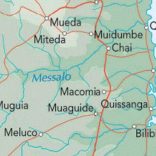Mozambique: Two vehicles attacked by terrorists - AIM
Islamic State claim is “deceptive” – consultant

in file CoM
A consultant following the attacks in northern Mozambique today said that the claim on Tuesday of a first attack by the Islamic State jihadist group (IS) is “deceptive”, and suggests a presence in the territory which is not proven.
“If the attack did happen, it would almost certainly have been carried out by members already in the province who have been operating there since October 2017, so the IS claim to actually operate as an organisation in Cabo Delgado is quite deceptive,” Tristan Gueret, an analyst at Risk Advisory in London, said.
It seems credible that there has been a confrontation between insurgents and Mozambican security forces, but “there is no indication that there is any formal relationship” between the aggressors and IS.
“All that is needed” to make a claim – accompanied by unauthenticated images of the war material that the group has been able to collect – is that the perpetrators “have uploaded [the] images via mobile phone, through Whatsapp or Telegram, to someone they have contacted”.
“There is no indication that there are formal ties, or ties that go beyond this,” he added.
“The IS has been wanting to show itself as a global terrorist organisation in recent months, after territorial losses in Syria and Iraq, and it does so by announcing its new provinces, such as the province of Central Africa, with the Democratic Republic of Congo (DRC), and where it includes this [alleged] attack on Mozambique – plus a new province covering India and Pakistan,” he said.
The claim regarding Cabo Delgado, in particular, Gueret notes, fits “the strategy of exploiting groups that are on the ground organising their attacks” to promote the image, while at the same time these groups also gain notoriety by being associated with the IS.
The analyst believes that “it is too early” to evaluate the impact of this claim, because the groups that have carried out the attacks in Cabo Delgado show little cohesion.
“There seems to be different motivations and different types of attacks, scattered across different zones. They do not seem like a unified group with leadership, if indeed we can talk about having some organisation. There is little clarity, therefore, whether there would be any influence from the IS,” he says.
Other groups in other parts of the world which have become associated with IS claims have not experienced any expansion or reinforcement thereafter, meaning that there does not appear to be any logistical or financial support on the part of the terrorist organisation.
The IS announced Tuesday that it had killed and wounded members of the Mozambican military on Monday in a clash with the army in Cabo Delgado.
The statement, in which the number of victims is not specified, represents the first time the terrorist group has claimed an attack in northern Mozambique, an area affected since October 2017 by armed attacks carried out by groups originating in Mocímboa da Praia.
The province of Cabo Delgado, where the mega-projects of natural gas exploration in the country are advancing, has been the scene of attacks by armed groups that will have killed at least 200 people since October 2017.
The IS claim concerning Mozambique comes about a month and a half after IS announced its first attack in another country in southern Africa, the Democratic Republic of Congo (DRC).












Leave a Reply
Be the First to Comment!
You must be logged in to post a comment.
You must be logged in to post a comment.